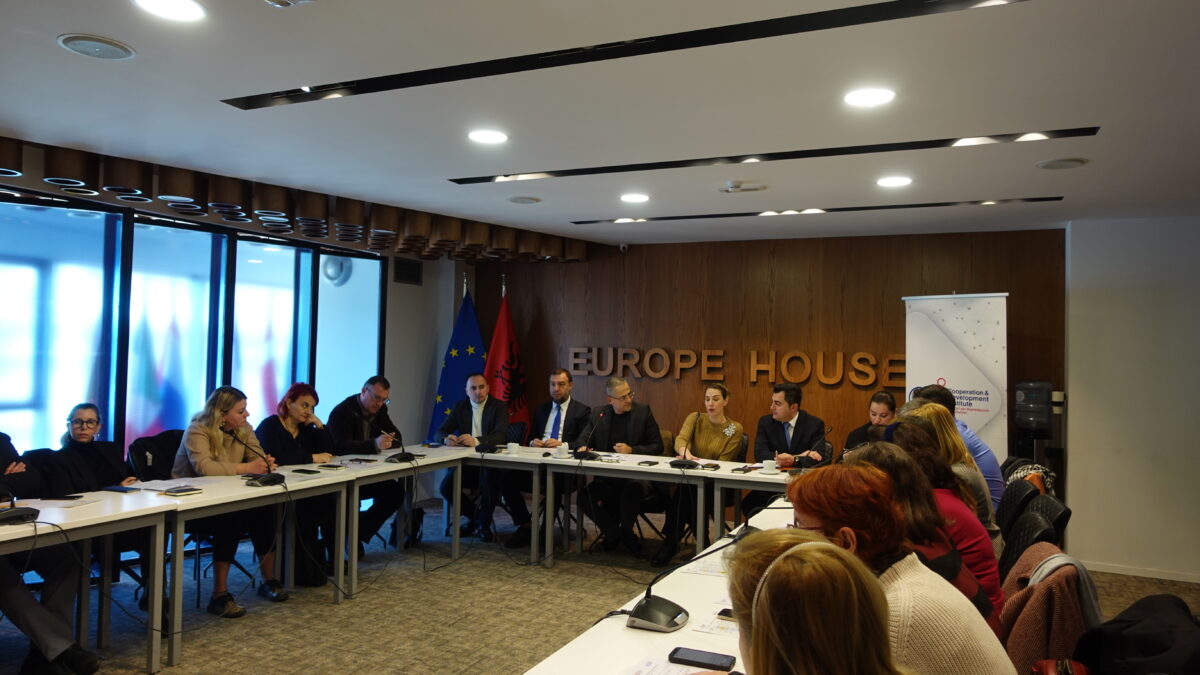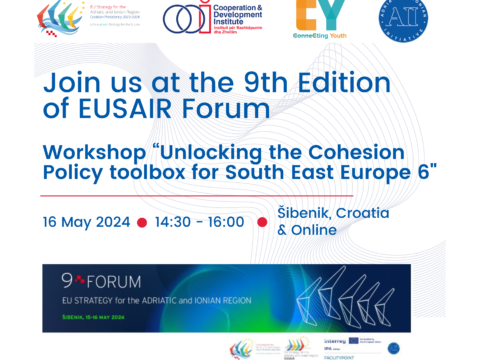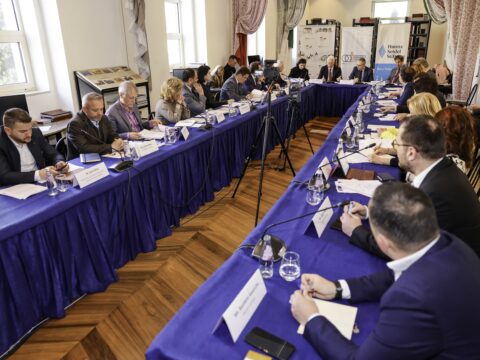06.02.2024
Stakeholders discuss WB Civil Society’s involvement in LIPs implementation

CRM Update: Montenegro has all 4 MAs ratified
January 17, 2024
For a development-centered and resilient Growth Plan
February 29, 2024On February 6, 2024, the Cooperation and Development Institute (CDI), in collaboration with the Transport Community Permanent Secretariat (TCT), hosted a workshop in Tirana titled “Toward Increased Inclusiveness in EIP Implementation – a Civil Society Take.” This gathering brought together key stakeholders to delve into the crucial aspects of enhancing the implementation of the Economic and Investment Plan (EIP), particularly in the Western Balkans region.
Mr. Ardian Hackaj, the Director of Research at CDI, kicked off the event by shedding light two regional studies conducted under theproject “Connected we Can: Strengthening WB6 CSOs Agency in the Economic and Investment Plan Implementation.” The first study provides a novel insight into the condition of the specialized Civil Society Organizations &Think Tank (CSO&TT) sector in the region that have been, or could be, involved in the implementation of the EIP, including an overview of their abilities, strengths, networking potential, opportunities, constraints, and potential impact on the infrastructure policy and project cycle. The second study intends to inform CSOs and TT about the existing mechanisms (national and regional) and institutions engaged in each stage of PCM and how SCSO&TT can participate.
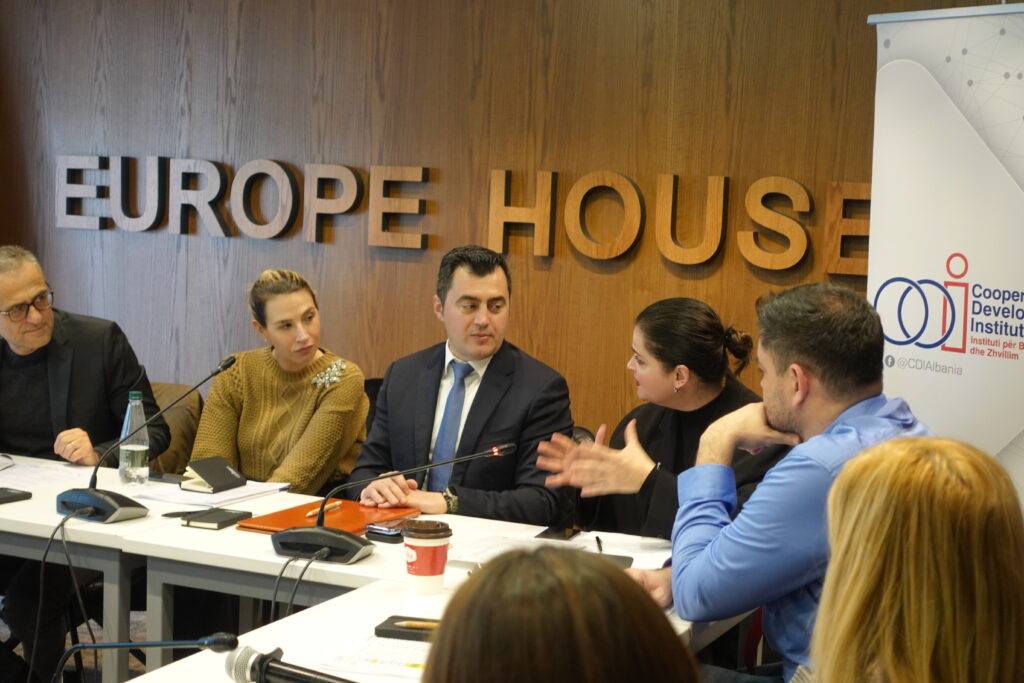
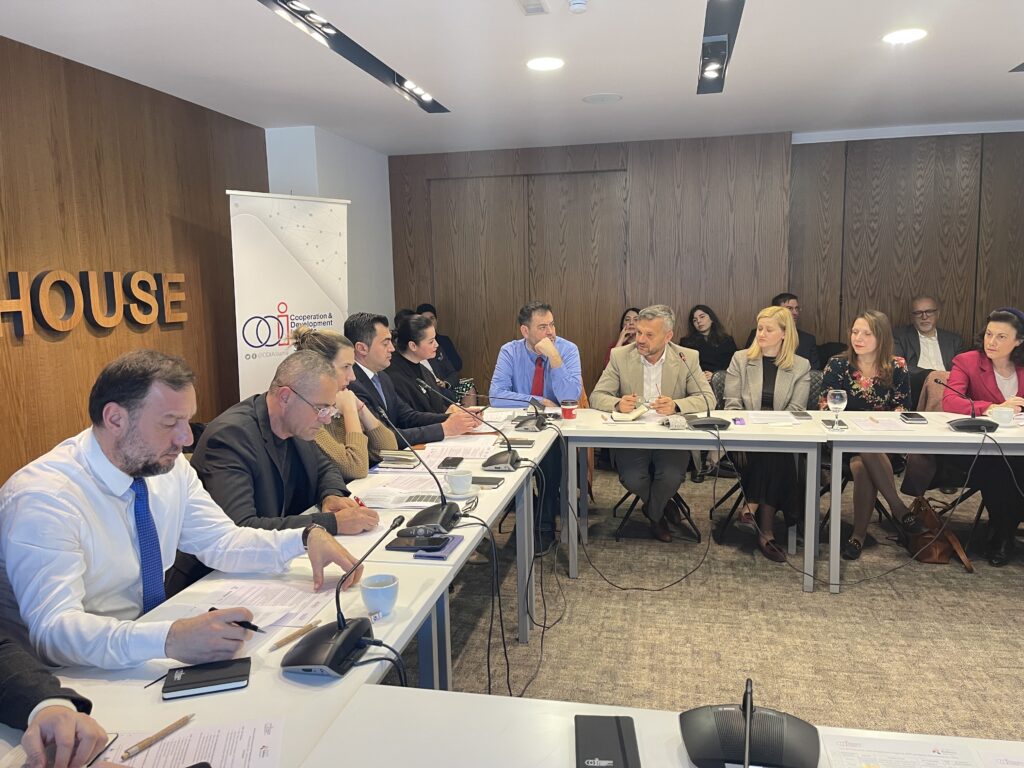
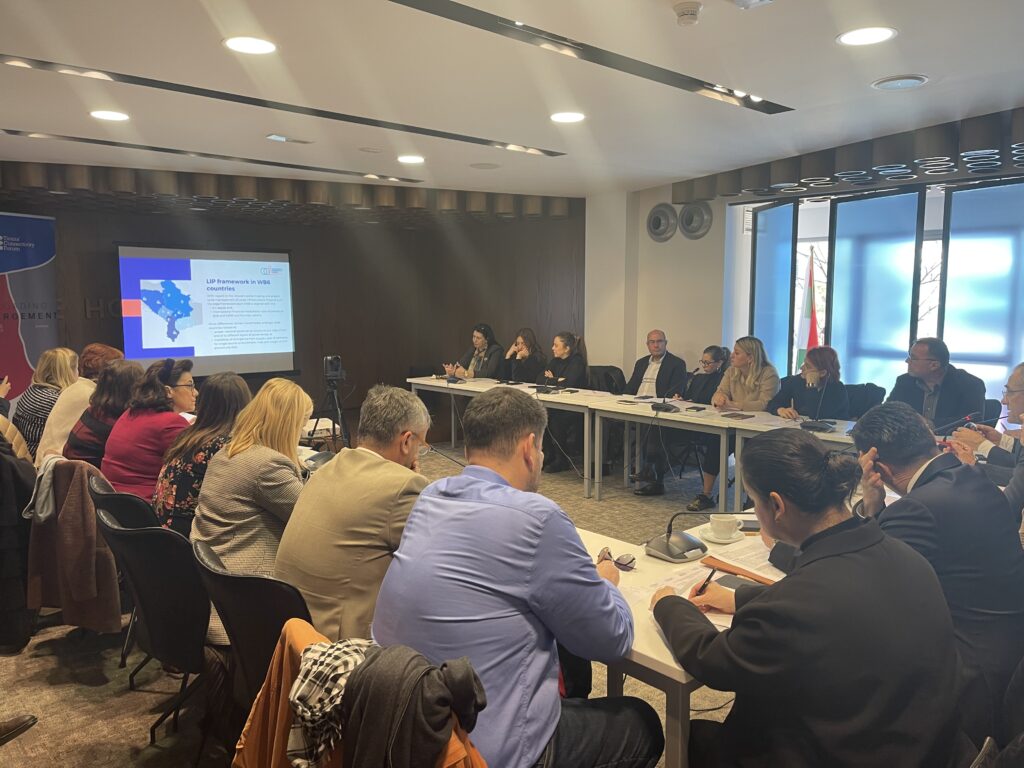
Highlighting the importance of inclusiveness in project implementation, Mrs. Martina Hakl, speaking on behalf of the TCT Secretariat Director, reiterated the commitment to engaging civil society in the transport sector. This sentiment was echoed by Ms. Dajana Cvjetkovic, Project Manager of SMART Balkans, who underscored the role of projects like “Connected we Can” in fostering participatory democracies and Euro-Atlantic integration.
The event also saw notable contributions from political figures such as Mr. Eduard Shalsi, Chair of the Economy and Finance Committee, Albanian Parliament, who advocated for increased parliamentary involvement in EU integration processes, particularly concerning Large Infrastructure Projects. Similarly, Deputy Minister for Infrastructure and Energy, Enkelejda Muçaj, expressed her eagerness to involve civil society, academia, and experts in both policymaking and project implementation.
Local perspectives were provided by Mr. Gledian Llatja, Mayor of Elbasan, who highlighted the significance of Corridor 8 for Albania and its citizens. He emphasized the positive impacts of the corridor on traffic flow, pollution reduction, business facilitation, and tourism promotion in the region.
The workshop also featured updates on infrastructure projects, including the Tirana-Durrës railway extension and the development of Corridor VIII sections, provided by representatives from Albanian Railways and North Macedonia Railways. Additionally, Ms. Zlatozara Stoilova, representing the Burgas Connectivity Forum/KAS Bulgaria, outlined the Forum’s focus areas for the year, with an emphasis on Corridor VIII.
A key takeaway from the workshop was the recognition of CSOs’ potential to contribute to various stages of large infrastructure projects and enhance their visibility and communication. It was recommended that executive, parliamentary, and civil society entities collaborate to establish partnerships that promote legitimacy in policy-making regarding EIP flagship projects.
In conclusion, the country event in Tirana served as a platform for fruitful discussions and insights, highlighting the importance of inclusivity, collaboration, and stakeholder engagement in advancing the implementation of the EIP in the Western Balkans.

